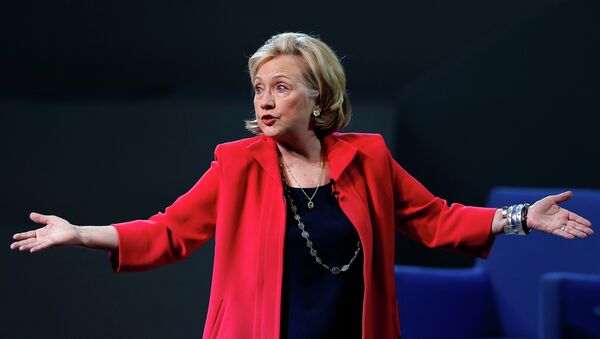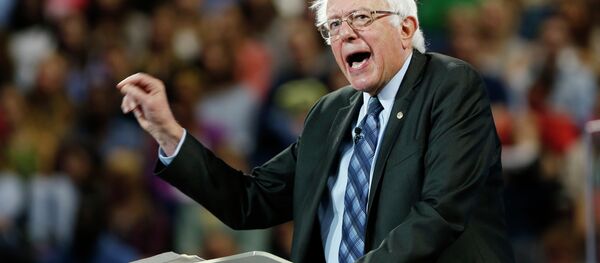Following a video of Clinton snapping at a Greenpeace activist, the topic of how much money the candidate takes from the oil industry has been at the forefront of the Democratic primary race.
On Thursday in Pittsburgh, Clinton was again approached about whether she would reject money from fracking lobbyists, and this time she laughed in the activist’s face.
"While Clinton laughs this off, voters who care about our climate and the influence of money in politics are still really disturbed by her continued acceptance of these industry donations," Yong Jung Cho, spokesperson for 350 Action, told Common Dreams. "If Clinton wants to prove she is a climate leader that will keep fossil fuels in the ground, she needs to pledge to refuse these donations, and she needs to do it now."
Meanwhile, Klein notes that a lot of firepower has been brought to bear by the Clinton campaign to “slap down” what they claim is the “non-issue” of the candidate accepting money from the petroleum industry. The writer refuted the notion and explained why the Clinton camp and its supporters are so very wrong.
“Hillary Clinton’s campaign, including her Super PAC, has received a lot of money from the employees and registered lobbyists of fossil-fuel companies. There’s the much-cited $4.5 million that Greenpeace calculated, which includes bundling by lobbyists,” Klein wrote. “But that’s not all. There is also a lot more money from sources not included in those calculations. For instance, one of Clinton’s most prominent and active financial backers is Warren Buffett. While he owns a large mix of assets, Buffett is up to his eyeballs in coal, including coal transportation and some of the dirtiest coal-fired power plants in the country.”
Klein detailed further examples of Clinton’s reliance on oil money.
“Then there’s all the cash that fossil-fuel companies have directly pumped into the Clinton Foundation. In recent years, Exxon, Shell, ConocoPhillips, and Chevron have all contributed to the foundation. An investigation in the International Business Times just revealed that at least two of these oil companies were part of an effort to lobby Clinton’s State Department about the Alberta tar sands, a massive deposit of extra-dirty oil. Leading climate scientists like James Hansen have explained that if we don’t keep the vast majority of that carbon in the ground, we will unleash catastrophic levels of warming.”
Klein wrote that it isn’t just Clinton’s corporate cash, but her "pro-corporate ideology," making it seem natural to accept money from lobbyists and banks, blinding her to the reasons why it is an endemic political problem.
Clinton’s world view, according to Klein, is that there is no conflict of interest, and that corporate money in politics is a mutually beneficial partnership, a “never-ending merry-go-round of corporate-political give and take.”
Klein explains that this is a problem that Sanders understands and Clinton does not. The author asserted that there needs to be more than just eliminating industry tax breaks and subsidies, as Clinton has promised. The petroleum industry must lose drilling and mining leases, be denied permits to build and maintain pipelines, and leave the oil, in spite of the economic attractiveness of trillions of dollars worth of profits, in the ground.
“If the next president wastes any more time with these schemes,” Klein said of the partnerships between the industry and the government, “the climate clock will run out, plain and simple.”




